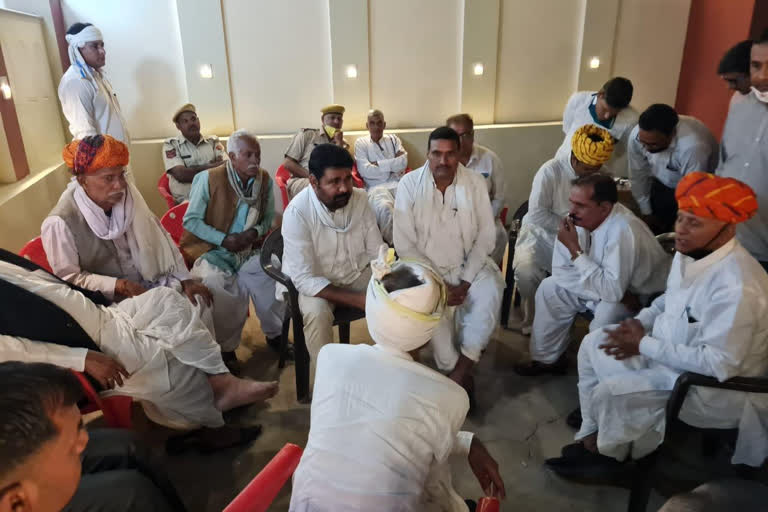Jaipur: Afterthe Gurjar Aarakshan Sangharsh Samiti announced protests from November 1, the Ashok Gehlot government discontinued internet connectivity along with implementing National security Act (Rasuka) in eight Gujjar majority districts.
Section 144 of the Criminal Procedure Code (CrPC) has been imposed in Rajasthan's Dholpur city and the administration has suspended 2G/3G/4G data internet services, WhatsApp, Facebook, Twitter and other social media (except voice calls).
On the recommendation of the District Collector, the Home Department prepared a proposal and sent it to the Chief Minister's Office on Friday, where along with the approval, the Chief Minister Ashok Gehlot gave powers to the concerned District Collectors to impose NSA.
The Gujjar community has a history of sitting on the railway tracks demanding reservation. During the recent Gujjar Reservation Mahapanchayat, the Panch Patels of the society under the leadership of Kirori Singh Bainsla had issued an ultimatum to the State government to address their concern within October 31.
Earlier on October 18, Gujjar leader Kirori Singh Bainsla gave an ultimatum to the Ashok Gehlot government in Rajasthan to accept their demands, including reservation in jobs and education categorising the caste under "most backward class" (MBC).
Rajasthan government on October 26, 2018, passed a bill which increased the Other Backward Classes (OBC) quota from 21 per cent to 26 per cent.
In December 2018, the Rajasthan government also approved one per cent reservation for Gujjars and four other backward castes (OBCs).
These communities are getting one per cent separate reservation under the legal limit of 50 per cent reservation meant for the most-backwards category in addition to OBC reservation.
Also Read: Gujjars warns Rajasthan government of agitation
